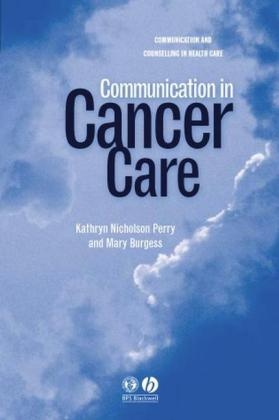En savoir plus
Zusatztext Ein verändertes Verständnis von Wissenschaft führt unter Einbezug technischerHilfsmittel! die eingebettet sind in ein ökologisch-holistisches Bild vomMenschen! zu neuen Erziehungs- und Bildungsbegriffen. In einer Zeit! diegekennzeichnet ist durch immer mehr in den Vordergrund rückende negativeKonsequenzen aus bisherigen dominanten wissenschaftlichen Denkweisen undsich daran orientierenden Erziehungs- und Bildungskonzeptionen! beschreibtdie Verfasserin einen Weg! über ein verändertes Verständnis von Wissenschaftzu neuen Erziehungs- und Bildungsbegriffen zu gelangen. Dazu werden folgendeTheorien bearbeitet: Descartes' Erkenntnistheorie! Komenskys Pansophie!Rousseaus Naturalismus! Humboldts Neuhumanismus! Deweys Pragmatismus! SkinnersBehaviorismus! geisteswissenschaftliche Pädagogik am Beispiel Litts! kritisch-rationaleErziehungswissenschaft am Beispiel Brezinkas! kritische Erziehungswissenschaftam Beispiel der Schallerschen Pädagogik der Kommunikation! v. BraunmühlsAntipädagogik und neuere Überlegungen aus den Bereichen Sozialwissenschaft!Ingenieurwissenschaft und Frauenforschung. Darlegungen zur praktischenNutzung der Konzeptionen runden den 1. Teil ab. Im 2. Teil des Buches werdendurch Expertengespräche aktuelle Sichtweisen aufgegriffen! die über dieLiteratur bisher nicht zugänglich waren. Im 3. Teil zeigt die Verfasserinzukunftsweisende Orientierungen zum Thema auf. Dazu gehört ein Verständnisvon Bildung und neuem Lernen! welches ohne moderne technische Hilfsmittel!die eingebettet sind in ein ökologisch-holistisches Bild vom Menschen!nicht auskommt. Informationen zum Autor Kathryn Nicholson Perry works at the Pain Management and Research Centre of the University of Sydney at Royal North Shore Hospital and offers training through her organization Stimuli Systems. She has previously worked in the HIV Mental Health Team at the Maudsley Hospital, and both the Richard Dimbleby Cancer Information and Support Service and INPUT Pain Management Unit at Guy's and St Thomas' Hospital Trust in London. Mary Burgess is Consultant Clinical Psychologist and Head of Psycho-oncology Services at University College London Hospitals. She has previously worked at King's College Hospital and the Maudsley Hospital, where she was responsible for establishing the HIV Mental Health Team. She has also worked as a consultant for a number of leading corporations and served as national clinical supervisor for one of the UK's largest Employee Assistance Programmes. Klappentext This practical and concise book aims to assist health professionals and the general reader alike to understand the impact of cancer and those it affects. It provides information about how to support patients through the cancer journey by paying careful attention to their concerns and how to handle them. The book clearly describes the psychological processes that may occur when someone learns they have cancer, including their emotional reaction. It describes in detail the skills that can be used to manage situations such as breaking bad news. Case material is used throughout to illustrate the situations typically encountered by health professionals. Tips are given to help people learn the skills themselves and successfully integrate them into their practice. The book provides an invaluable resource for anyone who has contact with people with cancer, including health and other helping professionals and the general reader. Zusammenfassung * Helps health professionals to develop the communication skills needed to understand and assist those affected by cancer. * Discusses the social and psychological problems faced by people with cancer. * Gives detailed information about the qualities and skills needed to act as a helper. Inhaltsverzeichnis 1. Cancer and Its Management. 2. The Social and Emotional Effects of Cancer. 3. The Individual Reality ...
Table des matières
1. Cancer and Its Management.
2. The Social and Emotional Effects of Cancer.
3. The Individual Reality of Cancer.
4. Coping with Cancer.
5. The Helping Process.
6. Using Counselling Skills to Clarify Problems.
7. Problem Solving.
8. Professional Issues for Those Using Counselling Skills.
Commentaire
'This is an important book. It deals in a detailed, well-informed and approachable way with difficult issues. It offers much-needed help to health care workers who want to communicate sensitively with cancer patients. Enlivened by vignettes which illustrate each point, it is wise, humane and practical. I commend it strongly to everyone who needs to understand and talk about cancer to those who have the disease.' Miles Little, Director, Centre for Values, Ethics and the Law in Medicine, University of Sydney
'I welcome this book which should become the standard text for undergraduates and postgraduates in the humanization of modern medicine. At last we have two texts that can stand side by side, Communication in Cancer Care and C: Because Cowards Get Cancer Too [by John Diamond], the heads and tails of the humane practice of oncology.' Michael Baum, Emeritus Professor of Surgery and Visiting Professor of Medical Humanities, University College London

